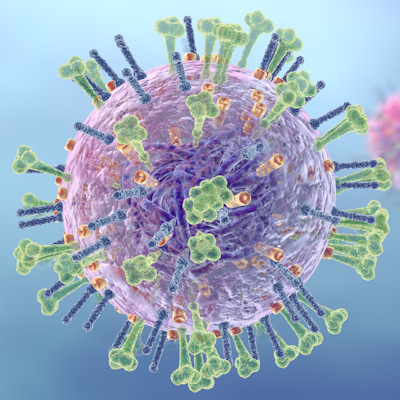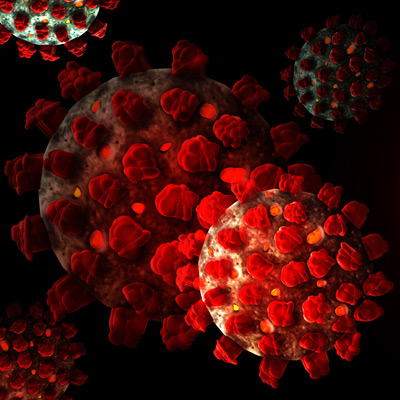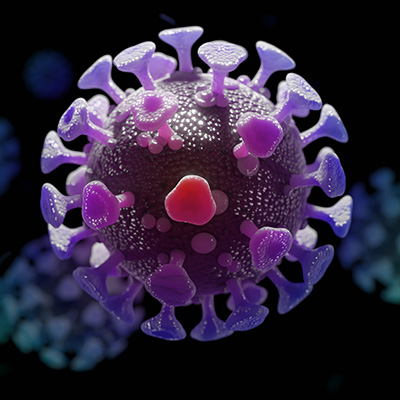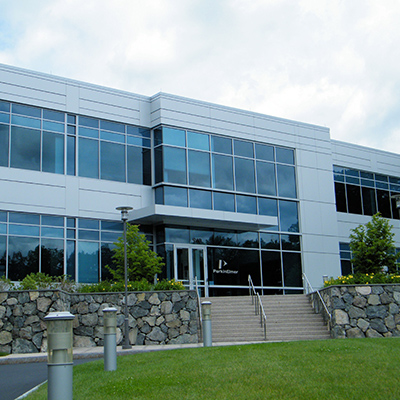November 14, 2022 -- Keck School of Medicine researchers and collaborators have discovered that GRP78, a protein implicated in both COVID-19 and various cancers, may also help fight both diseases.
Their study, published November 14 in the journal Nature Communications, might offer protection against new SARS-CoV-2 strains. Additional research, published in the November issue of the journal Neoplasia, suggests that targeting GRP78 also reduces the viability of certain cancer cells.
While current vaccines protect against COVID-19, additional methods are still needed to treat severe infections and new strains. The team investigated GRP78, a key cellular chaperone protein that helps regulate the folding of other cellular proteins. While healthy cells need little GRP78 to function normally, stressed cells require more. When SARS-CoV-2 appears, GRP78 is hijacked to help bring the virus inside cells, where it spreads.
In cultured human lung epithelial cells infected with SARS-CoV-2, researchers found that as viral infection intensified infected cells produced more GRP78. They then used mRNA to suppress GRP78 production in lung cells which, when later infected with SARS-CoV-2, released less virus to infect other cells. The team concluded that GRP78 was essential for viral replication and production.
The researchers then tested HA15, a small molecule drug that binds GRP78 and inhibits its activity, on infected human lung cells and in genetically engineered mice infected with SARS-CoV-2. They found that HA15 greatly reduced both the lungs' viral load and SARS-CoV-2 replication.
Separately, the team discovered that HA15 and YUM70, another GRP78 inhibitor, suppressed the production of mutant KRAS proteins that resist drug treatment and reduced the viability of mutated pancreatic, lung, and colon cancer cells. Targeting GRP78 may help treat these deadly cancers.
However, clinical trials are needed to establish HA15's and YUM70's safety and efficacy in humans. These and other GRP78 inhibitors may also help treat future coronavirus strains that depend on GRP78 for entry and replication.
"Lo and behold, we found that this drug was very effective in reducing the number and size of SARS-CoV-2 plaques produced in the infected cells," Keck professor and co-author Amy Lee, PhD, said in a statement.
Copyright © 2022 scienceboard.net











